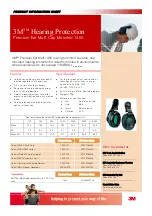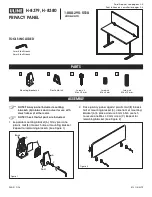
LAUNCH
LAUNCH
8
9
www.x431.com +86 755 8455 7891
www.x431.com +86 755 8455 7891
fuel trim refers to dynamic or instantaneous adjustments. Long-term fuel trim
refers to much more gradual adjustments to the fuel calibration schedule than
short-term trim adjustments. These long-term adjustments compensate for
vehicle differences and gradual changes that occur over time.
2.6 oBd II Monitors
An important part of a vehicle’s OBD II system is the Readiness Monitors,
which are indicators used to find out if all of the emissions components have
been evaluated by the OBD II system. They are running periodic tests on
specific systems and components to ensure that they are performing within
allowable limits.
Monitor operation is either “Continuous” or “Non-Continuous,” depending on
the specific monitor.
2.6.1 Continuous Monitors
Some of the vehicle components or systems are continuously tested by the
vehicle’s OBD II system, while others are tested only under specific vehicle
operating conditions. The continuously monitored components listed below are
always ready:
1. Misfire Monitor
This Monitor continuously checks for engine misfires. A misfire occurs when
the air-fuel mixture in the cylinder does not ignite. The misfire Monitor uses
changes in crankshaft speed to sense an engine misfire. When a cylinder
misfires, it no longer contributes to the speed of the engine, and engine speed
decreases each time the affected cylinder(s) misfire. The misfire Monitor
is designed to sense engine speed fluctuations and determine from which
cylinder(s) the misfire is coming, as well as how bad the misfire is.
There are three types of engine misfires, Types 1, 2, and 3.
• Type 1 and Type 3 misfires are two-trip monitor faults. If a fault is sensed
on the first trip, the computer temporarily saves the fault in its memory as
a Pending Code. The MIL is not commanded on at this time. If the fault is
found again on the second trip, under similar conditions of engine speed,
load and temperature, the computer commands the MIL “On,” and the code
is saved in its long term memory.
• Type 2 misfires are the most severe type of misfire. When a Type 2 misfire
is sensed on the first trip, the computer commands the MIL to light when
the misfire is sensed. If the computer determines that a Type 2 misfire is
enabling Criteria
-- Also termed Enabling Conditions. They are the vehicle-
specific events or conditions that must occur within the engine before the
various monitors will set, or run. Some monitors require the vehicle to follow
a prescribed “drive cycle” routine as part of the enabling criteria. Drive cycles
vary among vehicles and for each monitor in any particular vehicle. Please
refer to the vehicle’s factory service manual for specific enabling procedures.
Trip
- A Trip for a particular Monitor requires that the vehicle is being driven
in such a way that all the required “Enabling Criteria” for the Monitor to run
and complete its diagnostic testing are met. The “Trip Drive Cycle” for a
particular Monitor begins when the ignition key is turned “On.” It is successfully
completed when all the “Enabling Criteria” for the Monitor to run and complete
its diagnostic testing are met by the time the ignition key is turned “Off.” Since
each of the fifteen monitors is designed to run diagnostics and testing on a
different part of the engine or emissions system, the “Trip Drive Cycle” needed
for each individual Monitor to run and complete varies.
oBd II drive Cycle
-- A specific mode of vehicle operation that provides
conditions required to set all the readiness monitors applicable to the vehicle
to the “ready” condition. The purpose of completing an OBD II drive cycle is
to force the vehicle to run its onboard diagnostics. Some form of a drive cycle
needs to be performed after DTCs have been erased from the PCM’s memory
or after the battery has been disconnected. Running through a vehicle’s
complete drive cycle will “set” the readiness monitors so that future faults can
be detected. Drive cycles vary depending on the vehicle and the monitor that
needs to be reset. For vehicle specific drive cycle, consult the service manual.
Note:
Do not confuse a “Trip” Drive Cycle with an OBD II Drive Cycle. A “Trip”
Drive Cycle provides the “Enabling Criteria” for one specific Monitor to run and
complete its diagnostic testing. An OBD II Drive Cycle must meet the “Enabling
Criteria” for all Monitors on a particular vehicle to run and complete their
diagnostic testing.
Warm-up Cycle
- Vehicle operation after an engine off period where engine
temperature rises at least 40°F (22°C) from its temperature before starting,
and reaches at least 160°F (70°C). The PCM uses warm-up cycles as a
counter to automatically erase a specific code and related data from its
memory. When no faults related to the original problem are detected within a
specified number of warm-up cycles, the code is erased automatically.
fuel Trim (fT)
- Feedback adjustments to the base fuel schedule. Short-term
Summary of Contents for CRT511
Page 1: ...V1 00 002 08 12 2020...










































